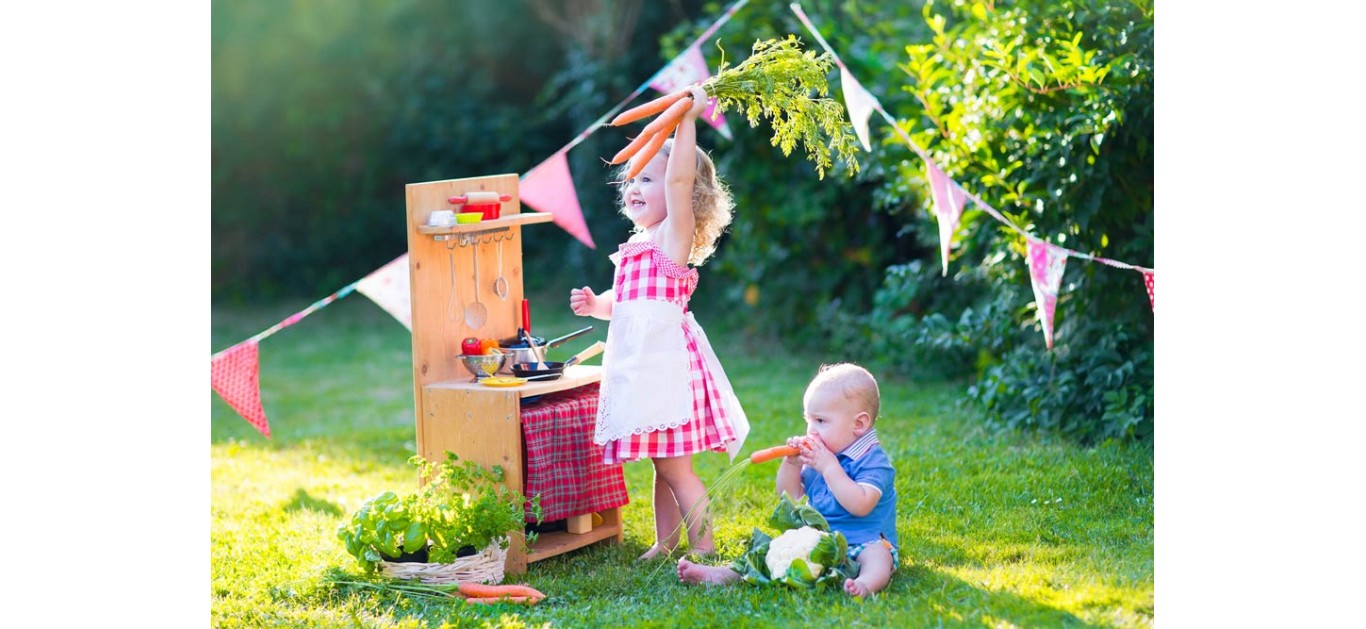How children benefit from play

Play allows our kids free rein to experiment with the world around them as well as the emotional world inside them. While it may look like mere child’s play to us, there’s a lot of work involved- skill building, problem solving, overcoming mental and physical challenges, etc. going on behind the scenes. Here’s how your child is learning and experiencing while playing:
Play develops physical development
Different kinds of physical play helps advance different skills. For instance, climbing monkey bars builds strength, skipping improves balance and other sports activities involve coordination. Activities like running, pedaling and throwing improves large motor skills and fine motor skill too. Playing with building blocks is another type of play that helps kids learn about balance, gravity and hand-eye coordination.
The dexterity your kid develops during play will carry over into everyday life too. After some practice, a three year old kid will be able to dress and feed himself, giving him/her a sense of independence. Play also helps kids work through crankiness and stress. In fact, without enough time for active play, kids can become tense and petulant, not to mention possibly obese.
So how do you encourage physical play? The best way to do this is to set a good example. Start at home by engaging in physical activities instead of sedentary ones like watching TV. Indoor games like hide-and-seek, tossing pillows and dancing are some ways to engage them in active play. While building a castle in the sandbox, riding a bicycle and kicking a ball are some good outdoor methods.
Play sparks the imagination
Imaginative play is one of the most important cornerstones of a child’s world. Almost anything can spark their imagination, even everyday objects. This is because they use these objects as symbols and they are learning that one thing can stand for other things. With their ability to pretend, kids can transform a simple wooden block into a boat or a few pots and pans into a drum set.
Everyday objects aren’t the only tings that kids transform in their make-believe word; they assume different roles too. One day, they’ll be a superhero and the next, they’ll be a doctor. By experimenting like this, kids explore a variety of outcomes and scenarios. Imaginative play gives kids a sense of control as they understand the dramas and situations of everyday life and practice the rules of social behavior.
To help encourage imaginative play, you can keep a box of everyday objects that your child can use during pretend play. Objects like plastic dishes and play telephones can help in role playing and toys like colored blocks give them unlimited possibilities and helps spur their imagination.
Play encourages social skills
As toddlers, kids engage in something called parallel play where they play side by side without any obvious communication. During their preschool years, kids start to interact with each other by creating multifaceted story lines together. As they do this, kids learn to cooperate, negotiate and share. When our kids disagree when paying with each other, they’re actually developing important social skills.
Once your child settles into the preschool routine, he/she will find playmates there. But your child will need your help to extend those relationships outside of preschool. The easiest method to build these newfound friendships is to schedule playdates or arrange a play group for your child and his/her friends. Get things started by introducing games and activities and then keep an eye on their behavior and development. After some time, you’ll realize which social skills your child has mastered and which ones he/she will need help with.
Play helps kids work through their emotions
Before kids can express their feelings and emotions in words, they express them through physical play, art, storytelling and other such activities. When kids experience something that is hard for them to understand, they review those experiences again and again through play.
This is how you can help: when playing, your kid will expose fragments of behavior he/she needs help with or can’t understand. You can respond by mimicking the right type of reaction And during times like this, try to get your child to laugh, which will greatly help in easing the tension he/she is going through.
